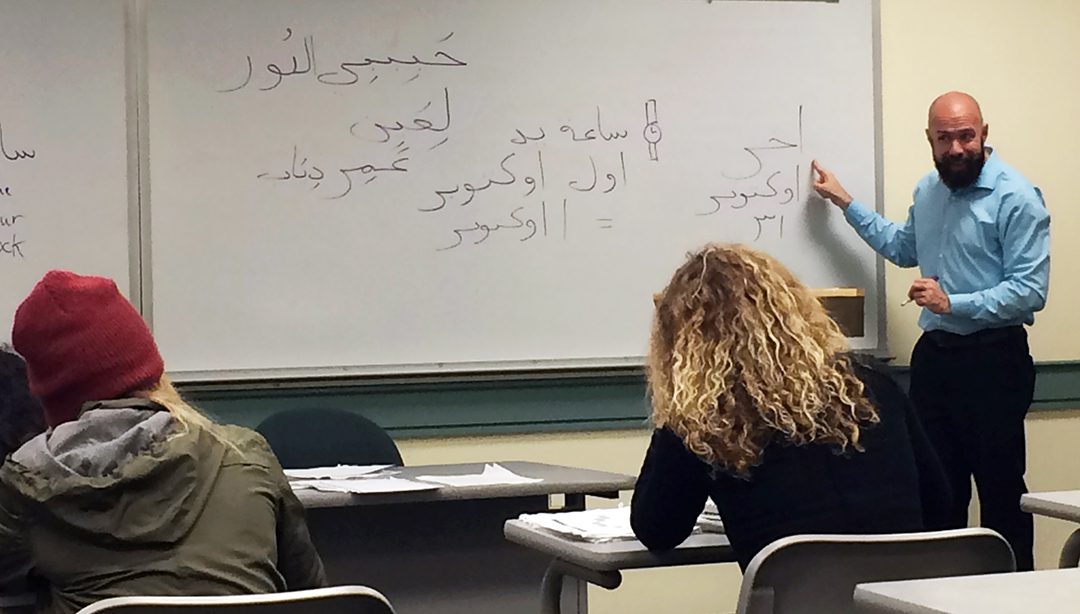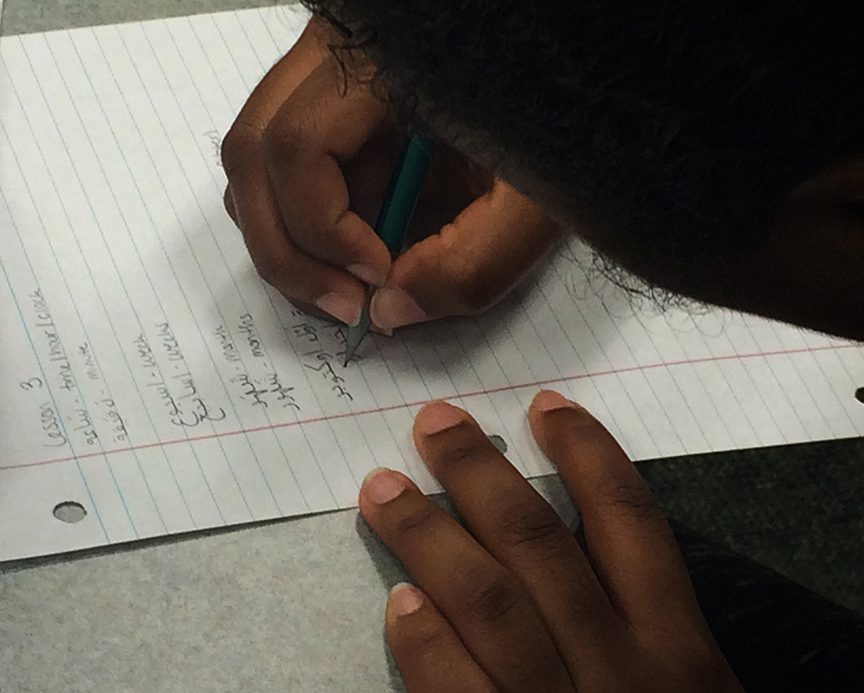An essential to understanding

As students enter the room, a Middle Eastern song popular in the ’90s is playing on YouTube and the teacher is writing on the board—from right to left.
This is Furman’s first Arabic class, focusing on Shami, the dialect spoken in Lebanon, Jordan, Syria and the Palestinian territories.
Jedidiah Anderson, a visiting assistant professor, said the language component adds a rich dimension to Furman’s Middle East and Islamic Studies minor. While the course focuses on written and spoken language, it also feeds an understanding and appreciation of Arabic culture.
“I want them to not think of the Arab world as an ‘other,’” Anderson said. “I want them to understand there is a culture, that people have hopes and dreams just like they do.”
As with any language, students are starting with the basics: the alphabet, common concepts and phrases, and an introduction to the culture.

Nicole Hartley ’21 takes notes during her Arabic class.
Anderson taught at Wofford College before coming to Furman. He learned Arabic in the Army’s Defense Language Institute, then worked as a document translator and eventually an interpreter in Iraq. He earned a master’s degree from the American University of Beirut before completing his doctoral degree at Indiana University.
The early weeks of the new class were devoted to learning the 28 letters of the Arabic alphabet. By the end of the first year, Anderson said his students should be able to navigate basic conversation and correctly read words that they haven’t encountered before.
This first semester the class has 14 students, plus Akan Malici, professor of politics and international affairs, who is auditing. He’s enthusiastic about what the language class will add to his own teaching.
“When you understand Arabic, you become a better teacher of the Middle East,” Malici said. “Inevitably, when you translate, the depth of the meaning can get lost and is getting lost.”
Anderson said some of his students are members of the Reserve Officer’s Training Corps, some are Muslim, some plan to work in non-governmental organizations in the Arab world. And some are simply curious.
Frazier Beall, ’20 is majoring in computer science and political science with plans to pursue a career in intelligence. She’s taken French and Spanish in the past, but Arabic is new level of difficulty.
“There are definitely challenges we don’t experience in English,” she said. “It keeps me on my toes.”
Alfons Teipen, chair of the Middle East and Islamic Studies interdisciplinary minor, said language was the next logical step for the program, which already includes history, religion and political science.
“If you want to understand a culture, a civilization, a society—if you want to fully understand—language is absolutely essential,” Teipen said.
The Arabic class is technically a one-year experiment, with the position funded through the religion department as a replacement for a professor on sabbatical. Teipen said he’ll continue to pursue other funding options and hopes to see the Arabic offerings grow.
“I think I have very convincing arguments that the language and Middle Eastern studies fits squarely in The Furman Advantage,” he said.
Furman promises every student a transformative education that produces intellectual, personal and professional growth and that opens doors for discovery.